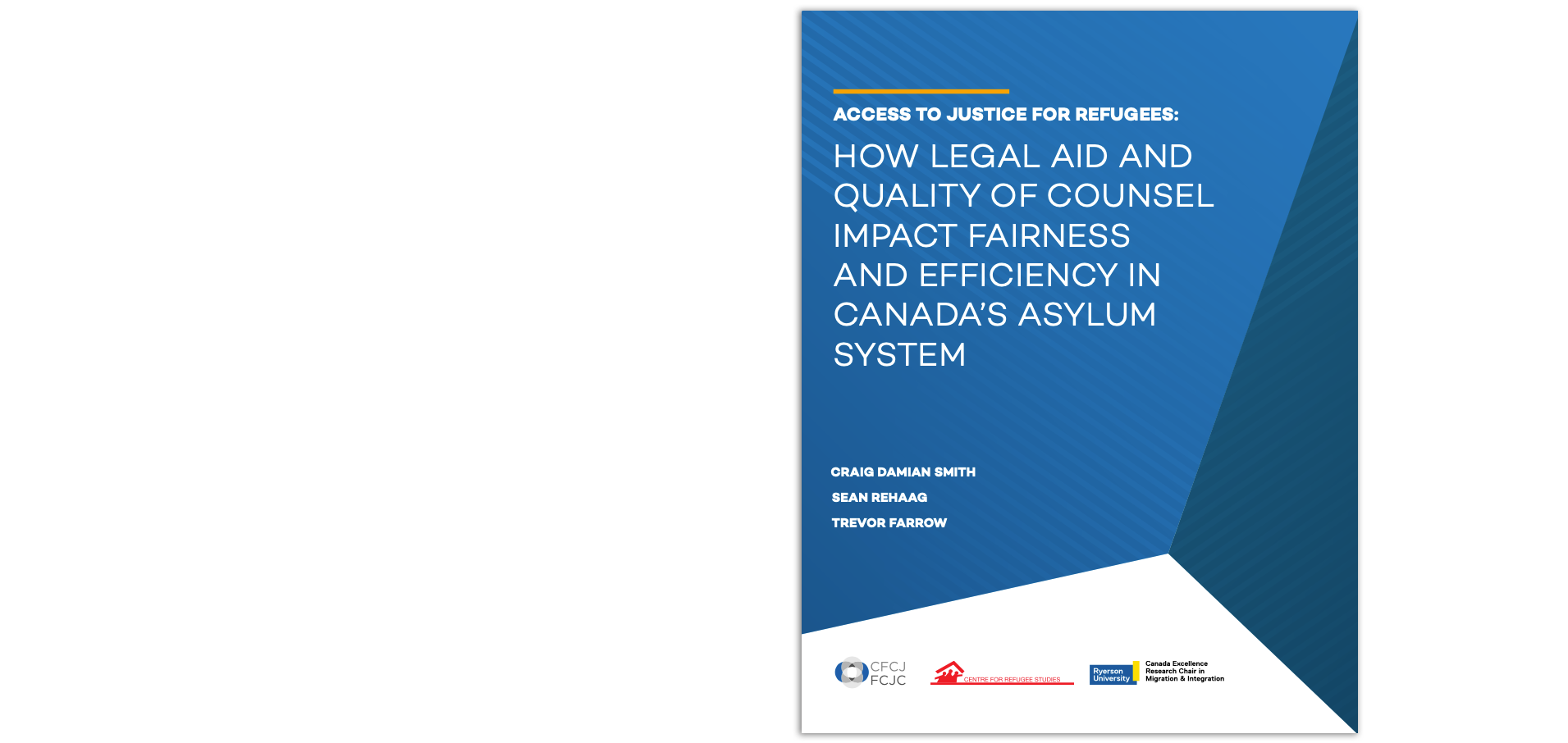A2J REFUGEES: Measuring the impacts of refugee legal aid funding in Canada


Craig Damian Smith, CERC Migration, with co-investigators Sean Rehaag (external link) (Centre for Refugee Studies, Osgoode Hall Law School, York University) and Trevor Farrow (external link) (Canadian Forum on Civil Justice, Osgoode Hall Law School, York University)

The project aimed to understand how funding shortfalls and cuts to legal aid affect refugee claimants’ access to justice and, more broadly, Canada’s asylum system. Our overall goals were to provide evidence in support of policy-making to strengthen Canada’s asylum system, bolster trust in public institutions and ensure access to justice for vulnerable refugee claimants. The research engaged all stakeholders in the asylum process and contributes to scholarship on Canada’s asylum system.

- How do barriers to publicly funded counsel affect refugee claimants’ access to justice?
- How does low-quality counsel or lack of representation affect Canada’s asylum system, including delayed hearings and appeal rates?
- How do barriers to access to justice affect refugee claimants’ exposure to exploitation, abuse or increased precarity?

Annual asylum claims have doubled since 2016. The increase has strained reception capacities of major cities and contributed to a multi-year backlog at the Immigration and Refugee Board of Canada (IRB). The federal government’s response has been to increase IRB capacity by hiring new decision-makers. Increased capacity has not been matched by legal aid for refugee claimants, and the Ontario government explicitly cut legal aid funding which targeted refugee claimants. Access to high-quality counsel significantly affects refugee claimants’ right to a fair and efficient process, and is integral to IRB efficiency and maintaining public trust in Canada’s asylum system.
The project was developed in partnership with UNHCR Canada. In addition to scholarly research, it will provide independent evidence for UNHCR, which has a mandate for monitoring member state compliance with international refugee law. This first-of-its-kind project engages with all relevant stakeholders including refugee claimants, IRB members, refugee lawyers, immigration consultants and staff at community organizations.

The project uses a mixed-methods approach. Our data collection includes surveys with decision-makers at IRB; focus groups with refugee lawyers, immigration consultants and staff at community organizations; and semi-structured interviews with refugee claimants. It also includes analysis of provincial legal aid data and administrative data from IRB.

SSHRC Partnership Engage Grant
UNHCR Canada

access to justice, refugee claimants, asylum, Immigration and Refugee Board of Canada (IRB), refugee status determination, exploitation, refugee precarity

